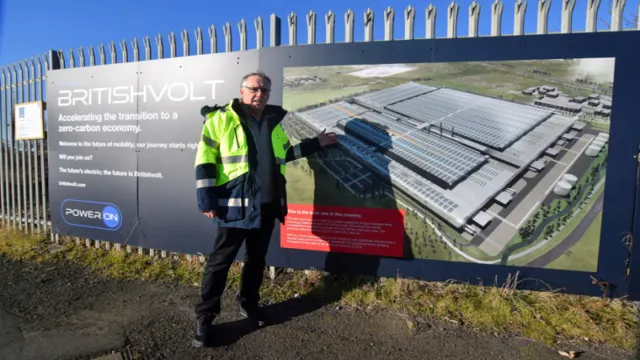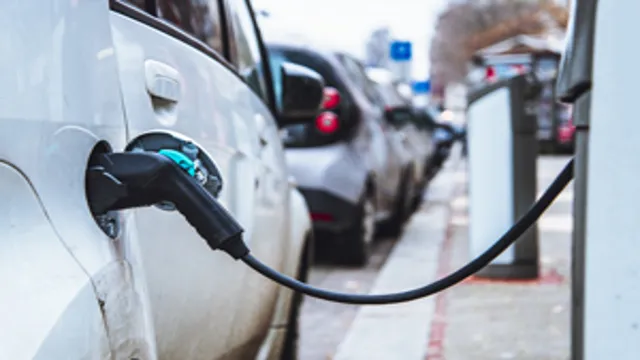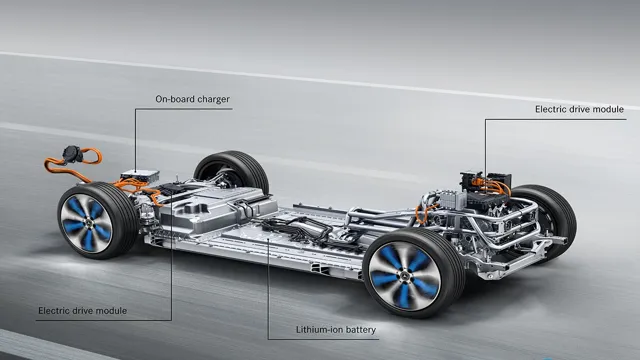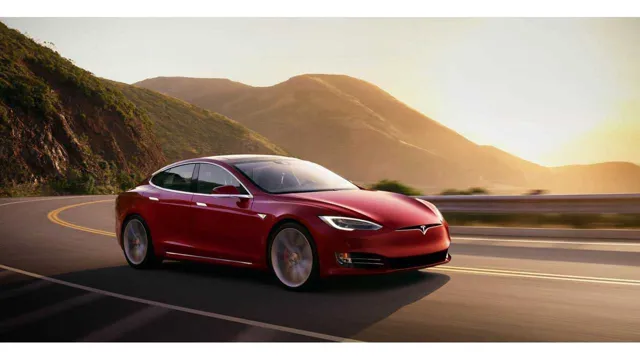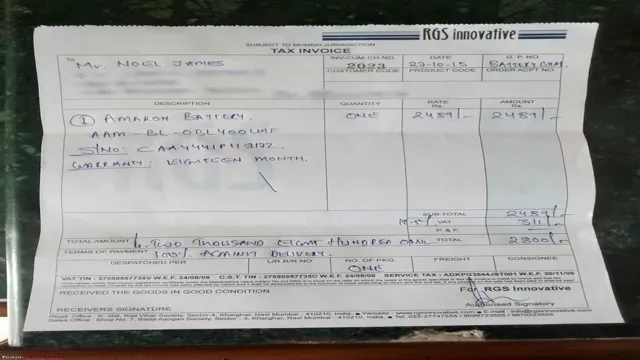Charged Up: Overcoming Britain’s Electric Car Battery Challenge
It’s no secret that electric cars are the future of the automobile industry. Their eco-friendly nature and efficient performance have made them a popular choice for many car enthusiasts worldwide. However, with the growing demand for electric vehicles, a crucial challenge arises- the need for high-quality and sustainable electric car batteries.
Britain’s electric car industry is struggling to keep up with the battery demand, posing a significant roadblock in the country’s quest for cleaner transportation options. In this blog, we’ll delve into the challenge of producing viable batteries for electric cars and explore the consequences of ignoring this pressing issue.
Current State of Electric Cars in Britain
The current state of electric cars in Britain seems promising, but there is a significant challenge they face. Britain’s electric car charge faces a battery challenge. While electric cars have been celebrated for their environmental benefits, the challenge lies in their battery technology.
Electric vehicle batteries are expensive and pose risks, starting from the mining process to disposal. Despite these challenges, the UK government has been urging automakers to eliminate the sale of cars powered by diesel and petrol by 2030. This incentive has resulted in more people buying electric vehicles, as they have access to grants and tax incentives.
Regardless of this, the battery challenge needs to be adequately addressed to ensure the ongoing growth of electric cars across the country.
Data on Number of Electric Cars in the UK
The number of electric cars in the UK is rapidly increasing, marking a positive shift towards sustainable transportation. Currently, there are over 400,000 plug-in vehicles in the country, reflecting a 97% increase in sales compared to the previous year. This surge is largely due to government incentives such as the Plug-In Car Grant and exemption from congestion charges.
The COVID-19 pandemic has also played a role in the surge, as people are looking for safer transportation options amidst the ongoing health crisis. Although electric cars are still more expensive than their petrol-powered counterparts, their lower running and maintenance costs make them a cost-effective option in the long run. With the UK government’s commitment to reaching net-zero emissions by 2050, the shift towards electric cars is likely to continue, paving the way for a cleaner and more sustainable future.
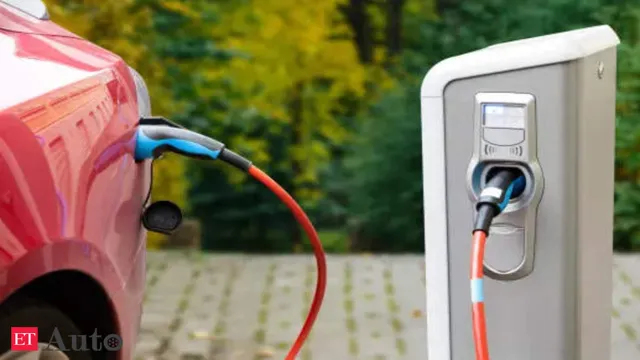
Electric Car Sales Trends in Recent Years
In recent years, electric car sales in Britain have shown an upward trend, yet still fall short of their combustion engine counterparts. This is likely due to the perceived high cost of electric cars compared to petrol and diesel cars, as well as concerns over the range that electric cars can travel on a single charge. However, with advancements in technology and increased investment in charging infrastructure, electric cars are becoming more accessible and convenient for consumers.
In fact, by 2030, the UK government plans to ban the sale of new petrol and diesel cars, which will undoubtedly further boost the popularity of electric vehicles. The transition to electric cars not only reduces air pollution but also provides a more sustainable and efficient mode of transportation. As the world shifts towards more sustainable energy sources, electric cars are likely to become the norm rather than the exception, and it is important for consumers to consider the long-term benefits when making their purchasing decisions.
The Battery Challenge for Electric Cars in Britain
Britain’s electric car charge is facing a battery challenge. While electric cars may offer an eco-friendly alternative to traditional petrol vehicles, their success relies heavily on the quality and performance of their batteries. Unfortunately, the development of electric car batteries in Britain has been slower than in other countries, and the supply chain is heavily reliant on foreign imports.
This has led to concerns about the price of batteries and their availability. In addition, the range on a single charge for electric cars remains a major concern. Although the battery technology is continually improving, it is still not efficient enough to compete with traditional petrol engines when it comes to long-distance driving.
While Britain’s electric car market is still growing, the need for better battery technology is vital if electric cars are to become a viable option for everyday drivers.
Issues with Current Battery Technology
The battery challenge for electric cars in Britain is a significant hurdle towards achieving zero-emissions vehicles and achieving a greener planet. The current battery technology has several issues that make it difficult for electric cars to gain a foothold in the market. Firstly, the batteries are quite heavy and bulky, that means they take up too much space in the vehicle.
Moreover, charging time is another problem with current batteries, as it takes a long time to charge them to full capacity, and this makes long journeys prohibitive. Battery performance also decreases significantly in cold temperatures, making it harder to use electric cars during the winter season. Most importantly, batteries are still quite expensive to replace, and this can discourage car owners from choosing electric cars.
However, significant advancements in battery technology are being made, such as the introduction of solid-state batteries that have higher energy density and faster charging times. These advancements could make electric vehicles more practical for everyday use and more affordable for the average consumer.
Potential Solutions to Battery Performance and Cost
One of the biggest challenges facing the electric vehicle industry in Britain is the performance and cost of batteries. While electric cars offer many advantages, such as zero exhaust emissions and reduced reliance on fossil fuels, the current crop of batteries are expensive and often fall short in terms of driving range and charging times. However, there are potential solutions on the horizon.
For example, researchers are working on developing more efficient battery materials, such as solid-state batteries, which could offer higher energy densities, shorter charging times and longer lifetimes. Additionally, advances in battery management systems and charging infrastructure could help reduce the costs associated with owning and operating an electric car. While the battery challenge is certainly a hurdle to overcome, it’s clear that there are promising solutions on the horizon that could help make electric cars more accessible and affordable for drivers in the UK.
Impact on Adoption of Electric Cars in the UK
The adoption of electric cars in the UK has been steadily increasing over the years, and with the government’s plans to ban the sale of new petrol and diesel cars by 2030, this trend is set to accelerate. However, one of the biggest challenges facing electric cars in Britain is their batteries. Electric cars rely on lithium-ion batteries, and the production of these batteries requires a significant amount of rare and expensive raw materials.
This not only drives up the cost of electric cars but also poses a challenge in terms of sustainability and ethical sourcing. It is important for manufacturers to address this battery challenge in electric cars, so that more people can switch to electric cars without facing financial or ethical barriers. In the future, we might see more innovative approaches to battery technology and alternative energy sources, making electric cars even more accessible and sustainable.
Policy and Investment for the Future
Britain is speeding towards a future of electric cars, but it faces an unexpected obstacle: the shortage of batteries. Recently, the government revealed plans to ban the sale of new petrol and diesel cars by 2030, leaving the door wide open for electric vehicles to take over. However, as the demand for EVs continues to grow, there is concern that the UK may not have enough batteries to meet that demand.
While there has been progress in developing UK-based factories that produce batteries, investment in the industry is currently lacking. To address this, the government needs to create policies that encourage investment in battery production while also being mindful of their environmental impact. Incentivizing the creation of sustainable practices at these factories can go a long way to ensuring the production of batteries keeps up with the demand for electric vehicles.
Only through forward-thinking policy and investment can the UK ensure it keeps pace with the necessary advances in battery technology that will power its electric car revolution.
Government Initiatives to Support Electric Cars
The global threat of climate change has prompted many governments to initiate policies and invest in technology to promote electric cars. In countries like Norway, the government provides tax exemptions and incentives for buying and using electric cars. The United States has allocated funds to support research and development of new battery technologies, as well as investing in charging infrastructure.
In China, the government aims to have 50% of all new cars sold to be electric by 2035 and has provided subsidies and reduced taxes to encourage the adoption of electric vehicles. These policy and investment efforts are crucial in promoting the adoption of electric cars and supporting the growth of a sustainable, low-carbon transportation system. By incentivizing the switch to electric cars, governments can reduce carbon emissions and ultimately, combat climate change.
Private Sector Investments in Battery Technology
As the world strives to reduce dependence on fossil fuels, battery technology is gaining traction as a sustainable alternative source of power. Private sector investments in battery technology have increased significantly in recent years due to heightened interest in environmentally-friendly solutions. Companies like Tesla, Samsung, and LG Chem are at the forefront of this movement, pouring resources into research and development of new battery technology.
These advancements are essential in creating long-lasting, efficient, and affordable batteries. Governments worldwide are also playing a significant role in promoting research and development of sustainable battery technology by offering incentives, grants, and policies. As personnel seeking solutions to mitigate the impacts of climate change, investment in battery technology is a sound approach.
In the next decade, advances in battery technology will prove crucial in the transition from fossil fuels to clean energy.
Conclusion: The Future of Electric Cars in Britain
As Britain charges towards a greener future, the electric car industry faces a pressing challenge – battery technology. While advancements in electric car batteries have been promising, the demand for quicker charging times, longer ranges, and more affordable batteries continue to drive innovation. As we surge towards the finish line, it’s important to remember that the electric car revolution is as much about a change in mindset and lifestyle as it is about technology.
So, let’s buckle up and charge on towards a more sustainable future, one battery at a time.”
FAQs
What is Britain’s electric car charge facing?
Britain’s electric car charge is facing a battery challenge.
What is the current state of Britain’s electric car charge?
Britain’s electric car charge is facing challenges with battery technology.
How is the battery challenge affecting Britain’s electric car charge?
The battery challenge is causing delays and setbacks in the growth of Britain’s electric car charge.
What steps is Britain taking to overcome the battery challenge?
Britain is investing in research and development of new battery technology and infrastructure to support electric cars.
